
Bacon is one of those types of food that has a cult following behind it.
You can find it on t-shirts, coffee mugs, and almost every type of food has a version with bacon.
There’s even bacon ice cream.
Although bacon seems to be well-loved by society, those who are shopping for it may realize that this bit of salty, smoky, porky goodness is surprisingly pricey.
For something that seems like a household commodity, you may wonder why it has a high cost.
Here are 10 reasons that bacon is so expensive.
Why Is Bacon So Expensive? (Top 10 Reasons)
1. Supply Limitations

While food prices tend to rise and fall with the seasons, the prices of bacon, as well as several other types of meat, have been consistently high since the COVID-19 pandemic.
Considering that many pig farms are back in operation, you may not be sure what’s causing the problem that’s making the price soar.
It has to do with what happened to the pigs during the onset of the pandemic.
Because people were stuck at home and unable to go out to eat, many restaurants and other eateries had to stop ordering as much food.
There was less demand for meat products.
Pig farms also had to shut down large portions of their operation to keep their employees safe and healthy.
That left these farms with an excess of pigs and no money coming in to feed them.
That prompted the companies to slaughter the pigs prematurely.
It cut into their profits deeply.
The problem is that this created a shortage in the supply of pigs for bacon.
When everyone returned to work and restaurants opened again, there was high demand for bacon and other pork-related meats.
The pigs weren’t available.
There was a bottleneck in which pigs that were ready for slaughter were immediately bought and shipped off.
This left other buyers waiting for the next shipment.
Since demand was high and supply was low, it allowed the companies to put a higher price on bacon.
That price hasn’t gone down over time because supply still hasn’t reached demand.
It may not happen for several years since bacon never goes out of style or demand.
Bacon is expensive because there’s a lack of supply of pigs in the market.
2. California Pig Farm Laws

In an effort to be more humane to slaughter animals, California passed laws that impact the pork and poultry industries.
They required farms to build larger facilities in which to house their animals.
Not only would this improve the lives of the animals, but it would also be more sanitary.
It was the public that voted in favor of the law by a large margin.
The problem is that while poultry farms adapted to the new changes quickly, the pork farms haven’t.
Only 4% of pig farms in Iowa, which is where the bulk of pig meat comes from, are compliant with the new laws.
The deadline to become compliant is approaching fast.
If the pig farm is unable or unwilling to comply, then it will not be able to ship its meat to California.
That means California and its residents will be able to buy their pig meat from only a few companies.
With high demand and little supply, the price of bacon will soar.
According to a study performed by an opponent to the pig farm laws, they determined that the price would increase by 60% if California lost half of its pig supply.
That would make the price of a pound of bacon increase from $6.00 to $9.60.
Part of the reason that hog farms haven’t complied yet is the added cost.
They’ll need to invest in larger areas of land to accommodate the increase in the size of lodgings for the pigs.
An economist determined that every hog farm can expect around a 15% increase in their production costs per pig.
Those manufacturers would then need to recoup their losses by raising the price of bacon.
Even though this primarily affects residents in California, it could affect everyone eventually.
If all the hog farmers comply with the laws, then everyone can expect to pay higher prices for bacon.
3. Swine Flu

Another big factor that’s making the price of bacon increase is the swine flu.
African swine flu is a disease that affects pigs and often kills them.
It can sometimes be transferrable to humans although the infection rate is lower than other diseases.
Some cases have been reported in the United States.
Although it hasn’t spread to the entire country, it is a concern.
It also impacted the supply chain since they had to kill the infected pigs.
That means fewer pigs were able to undergo the slaughtering process to become bacon.
With less bacon around, the price for it increases.
This also impacts the global supply.
Whenever the swine flu occurs in a certain part of the world, it impacts the global supply of pigs as a whole.
Those restaurants and other buyers who relied on that farm for their pig meat now have to buy their meat elsewhere.
That then puts stress on the supply since demand is increasing.
Thanks to the pandemic which has already put stress on the bacon market, the emergence of swine flu only makes the problem worse.
Bacon is expensive because of a rise in swine flu found in the western hemisphere.
4. Demand For Protein

Whether it was an effort to become healthier or just to enjoy comfort food, studies showed that there has been an increase in protein consumption in the past few years.
According to one study, the consumption of protein will increase by 9.1% between the years 2020 and 2027.
Bacon is a key part of that.
Many consumers eat bacon because of its flavor and high protein count.
A slice of bacon typically has around three grams of protein.
Since it’s usually impossible to eat a single strip, many people receive a good amount of protein from a standard breakfast that includes bacon.
One reason some people are eating more protein is that they’re trying to be healthier.
Protein is the building block of DNA.
It helps keep your hair, skin, and nails healthy.
It also gives you energy and helps you build muscle.
Thanks to the COVID-19 pandemic, people are looking to try healthier approaches to life.
That includes eating more protein and vegetables.
Some people also started working out more often during the pandemic.
Since they were unable to do anything outside of the home, they brought the gym to their living rooms.
During that time, they may have realized that they enjoy working out and want to reinforce the hard work they’re doing.
That includes eating more protein to build muscle mass.
Whatever the reason behind it, there’s an increase in the demand for protein.
Since bacon is an easy go-to protein source, the demand for it has also increased.
With high demand and low supply, the price for bacon increases.
Bacon is expensive because more people are consuming protein on a regular basis.
5. Pork Belly

Bacon is also expensive because of where it comes from on the pig.
When slaughtering a pig, each part of the animal has specific uses.
Ham, for example, can come from several different areas on the pig, but it mostly comes from the pig’s legs.
Bacon only comes from a pig’s belly.
Although pigs are quite large, their bellies aren’t the largest part of them.
The legs are the biggest cut of a pig which makes ham the least expensive piece of meat.
Depending on how well a pig ate during its life, it may have a larger or smaller belly.
This means that one pig might produce more bacon slices than another pig.
Since it isn’t a set number, a manufacturer can never be 100% sure how much bacon they’re going to be able to produce in a year.
The fact that bacon only comes from one part of a pig also makes it expensive because the rest of the meat technically goes to waste.
While they sell every part of the pig, someone who is only interested in eating bacon is essentially wasting the rest of the pig.
As a matter of cost, it’s a waste for the farm.
To ensure that they receive the value of the pig no matter what part it is, they increase the prices on smaller sections.
Thus, bacon is more expensive than ham.
Bacon is expensive because it only comes from the pig’s belly.
6. Cost of Pig Care

The costs to take care of and feed pigs are also why bacon is expensive.
Farms have to tend to their pigs to ensure they can produce as much meat as possible.
They can’t stuff them full of just any type of food, though.
The FDA closely regulates the meat industry.
Since whatever the pig eats also ends up in humans, farmers have to ensure that their pigs are not eating something that could be harmful to humans.
That means farmers have to spend more on quality food.
They also have to keep their pigs healthy with vaccines and other medical procedures.
If one of their pigs becomes sick with the swine flu, for example, then it can impact their entire herd.
Instead of losing several millions of dollars by having to put down their herd of pigs, they only spend a few thousand by keeping them properly vaccinated.
That said, the cost of medical care for pigs is high.
Along with land taxes and other costs associated with farming pigs, the result is a high production cost.
To cover those costs, manufacturers have to price the meat at a high enough amount to cover their losses.
They know that certain types of meat sell better than others.
To ensure they can make a profit, the more popular types of meat tend to have a higher price.
Bacon is expensive because the cost of taking care of pigs is expensive.
7. Rise In Bacon Consumption In Other Countries

While Canada and the United States have a reputation for eating a lot of bacon, other countries are starting to catch up.
China, in particular, has seen an increase in pork consumption.
China consumes half of the world’s pork supply.
Although it’s pushing for self-sufficiency in an attempt to cut down on the cost of importing pork, it hasn’t reached that level yet.
In particular, it still imports a lot of soybeans and other grains to feed its hogs.
China’s increase in pork consumption is a direct outcome of the rise of the middle-class in the country.
More people are able to afford more expensive foods like imported meat.
That means more people are eating bacon.
Since more people in the world are eating bacon, the demand for it is only increasing.
Whenever the supply lines take a hit, it disrupts the entire market.
This leads to higher prices of bacon for everyone.
Bacon is expensive because more people in the world are eating it.
8. Pig Quality

The quality of the pig from which the bacon comes can also impact the price of bacon.
Some people may think that all bacon meat is the same, but that’s like saying all steak is the same.
There are certain bacon brands that are of higher quality than others.
These brands tend to feed their pigs with a high-quality diet of different foods.
It makes them fatter and healthier.
As a result, the bacon that comes from their bellies has more fat and flavor in it.
Restaurants tend to pick higher qualities of bacon meat first since they want to give the best possible dining experience to their customers.
You can also find expensive bacon at the grocery store.
Sometimes your local butcher may have a higher quality of meat, too.
The reason for the higher price is the higher cost that farms take on to make the pig ideal for butchery.
You can often associate certain brands with a higher quality of meat.
Some examples of high-quality bacon brands include:
- Vande Rose Farms Artisan
- Trader Joe’s Store Brand
- D’Artagnan
- Tender Belly
If you want to buy expensive bacon, then these are the brands to look for.
9. Bacon Variants

The type of bacon you buy can also impact its price.
Standard bacon is the cheapest option.
There are also other options that can increase the price like having it cured or smoked.
This is an additional step in the manufacturing process that makes the bacon have even more flavor.
Some brands like to smoke their bacon with certain types of wood or cure them with fruits like apples.
The result is a flavorful slab of meat with a higher price.
Since it costs more to produce the artisan variant, the price also increases to recoup the loss.
There are also slightly wackier variants like chocolate bacon and spicy bacon.
These products are more expensive than standard bacon, as well, because they require more manufacturing steps.
The more complex the bacon is, the more expensive it’s going to be.
Bacon is expensive if it’s a variant and not standard bacon.
10. Engrained In Culture

A final reason that bacon is expensive is that it has a strong following.
Bacon has become a part of American culture.
It sometimes feeds into toxic masculinity expectations concerning what a man should eat.
It also tends to feature in most Hollywood movies or commercials during a breakfast scene.
Bacon symbolizes the feel-good start of a day surrounded by family.
It’s often called the perfect way to start one’s day.
Since bacon is so beloved, you see it on t-shirts and other merchandise.
You can even find toys that have been “baconified.”
Because bacon is such a part of the culture, it also comes with an increased price.
Companies understand that people are more willing to pay for bacon even if it’s expensive because it’s engrained in the culture.
It feels weird not to eat bacon when everyone else does.
As a trademark of American culture, bacon gets away with carrying a high price tag.
How to Save Money on Bacon

While bacon can be expensive, especially as supply decreases and demand increases, there are a few ways that you can save money on it.
Here are some tips you can use to save money on bacon.
1. Buy Substitutes
While bacon traditionally comes from a pig, the high price of it may put you off.
Luckily, you don’t have to go completely without adding bacon to your breakfast.
There are several meat-based and plant-based substitutes you can use instead.
One of those most popular meat-based substitutes is turkey bacon.
It doesn’t have the same flavor as meat that comes from a pig, but turkey bacon has a similar texture and crispiness to it that should satisfy the cravings of most bacon lovers.
Another meat-based substitute is ham.
Ham is often cheaper than bacon.
It also gives you the flavor of the pig that you’re missing with turkey bacon.
It won’t crisp up as well, but it can satisfy you in a pinch.
For plant-based eaters, you can find several kinds of plant-based bacon on the market.
They use bean curd and several other ingredients to make vegetarian bacon.
You’ll want to find variants that smoke their products to get the best result.
2. Stick with Standard Bacon
If you tend to eat cured or smoked bacon, then you might want to switch to standard bacon.
It’s cheaper and you can cure and smoke your bacon yourself.
You may even get the chance to experiment with different flavors and find a brand-new favorite.
3. Buy from a Butcher
One final way to save money on bacon is to find a local butcher and buy your bacon from them.
Not only is the bacon likely going to be higher quality, but it’s also often cheaper.
That’s because buying from the butcher takes one step out of the manufacturing process.
You can skip the marked-up prices of the grocery store and instead deal with the butcher directly.
Conclusion
Despite being a food loved by so many Americans, bacon can sometimes carry an expensive price.
The high demand and low supply of the market are pushing the price of bacon to high amounts.
However, other problems like new laws and illnesses are also impacting the price of pork.
Following the tips above can help you save money on bacon.
NEXT: Restaurant Or Cafe? (7 Differences Explained)
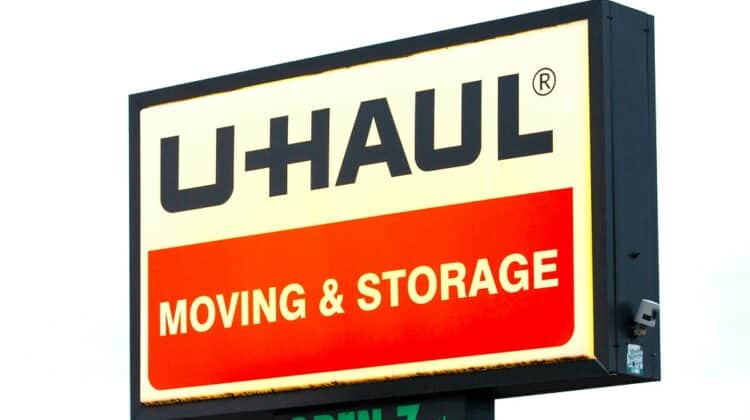
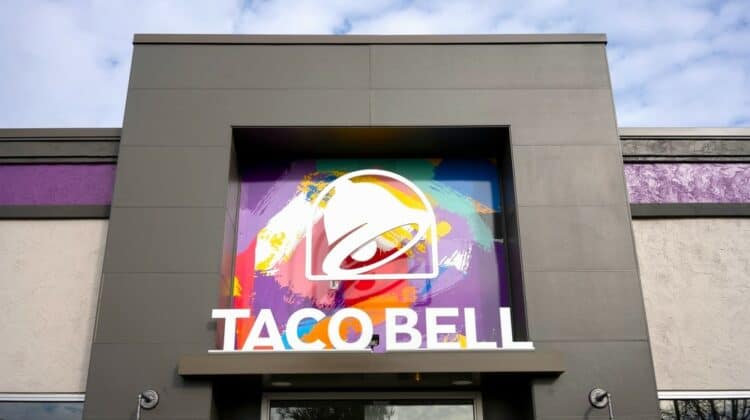









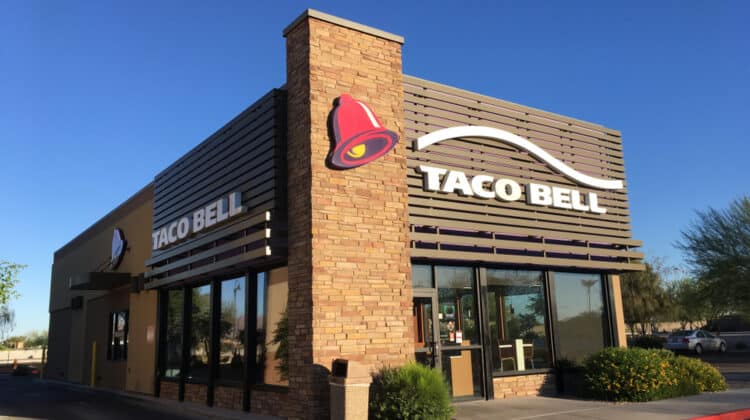
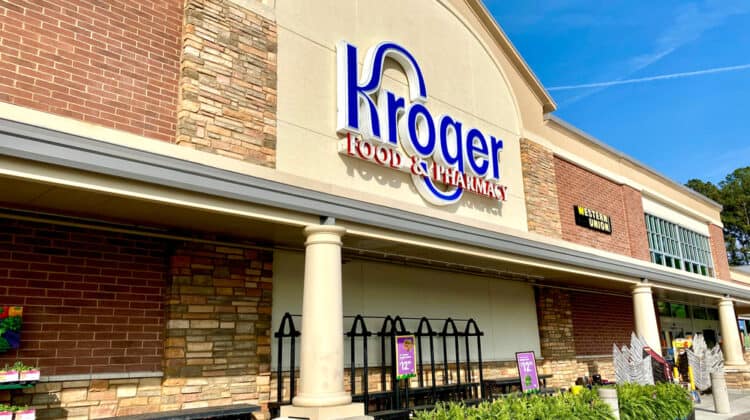
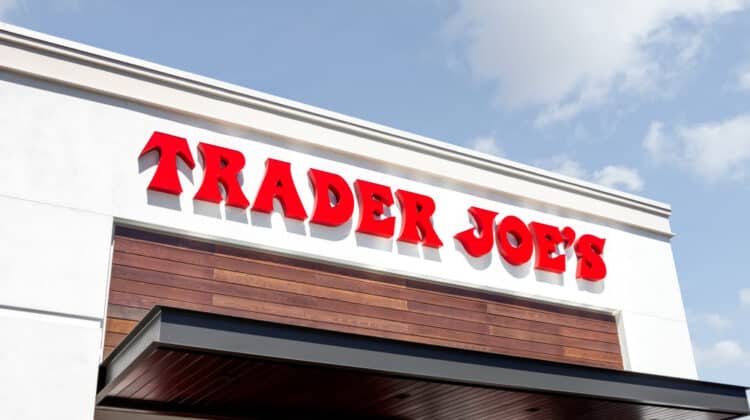






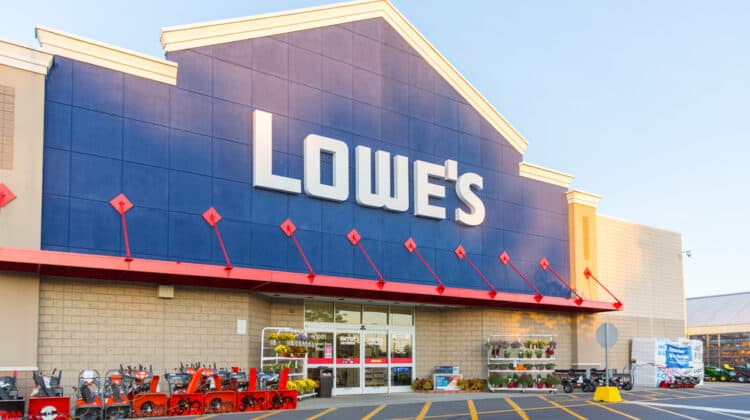


There’s actually an fbi probe into the 3 major meat packing industries working simultaneously together to manufacture a supply deficit that doesn’t actually exist to drive prices to an all time high. It’s probably to make up for losses early in the pandemic. This probe was started by ranchers who say they’re still pushing the same numbers and they’re not making more money even though their product is being sold for more.
If you talk to local slaughterhouses working on a small scale, you’ll find a waiting list for processing. Some farmers are burying their animals because they can’t get them processed.
There’s more going on than people are eating more bacon. When the supply and demand chain kinks it’s because of something bigger behind the scenes.